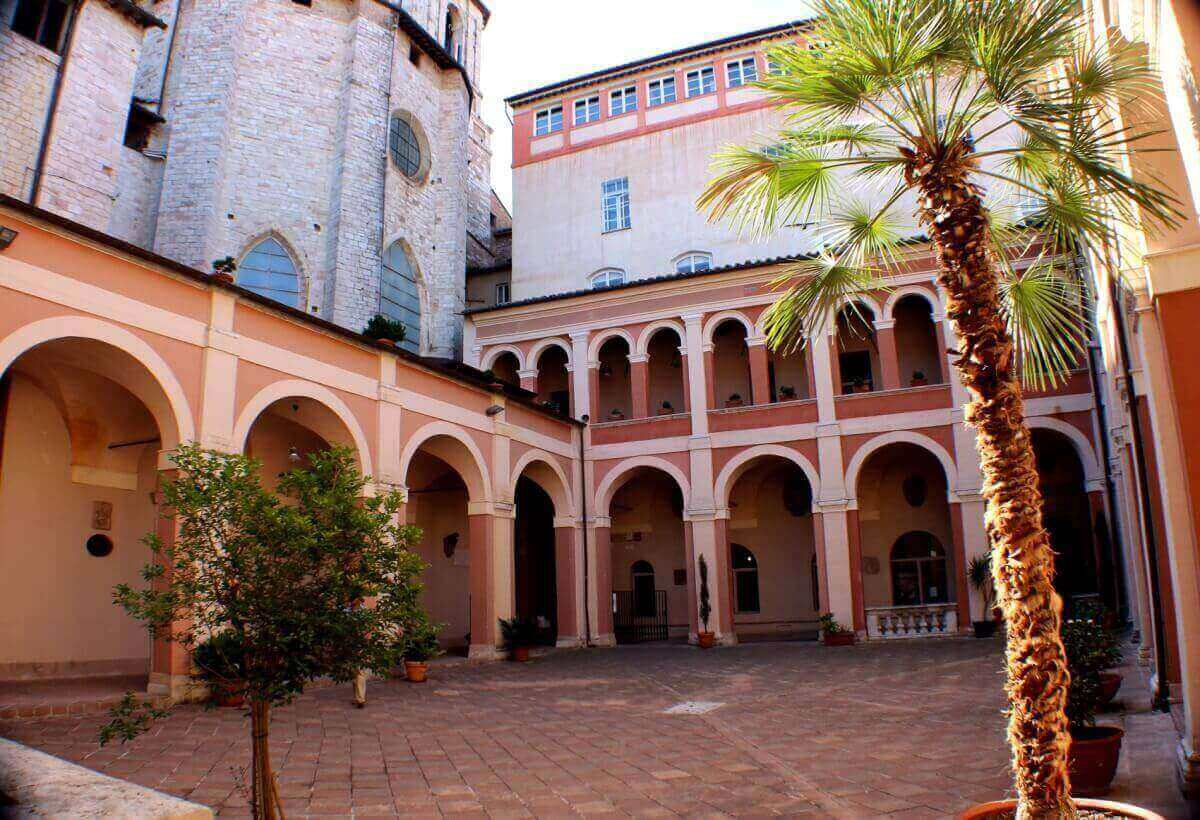Each semester, Umbra provides a coffee workshop for students. During this event, Dr. Elisa Ascione, the coordinator of Umbra’s Food Studies and Sustainability Program, presents the history of coffee, including its origin, innovations, and modern cultural significance.
Check out the list, below, of six facts you may not know about your Monday morning caffeine fix!
1. The Origin of Coffee
While enjoying modern coffee derived from beans harvested across Latin America and Africa, it is important to remember that coffee originated in Ethiopia.
According to legend, there was once a goat-herder who noticed that his goats became energetic and refused to sleep at night after eating berries from a particular tree. Intrigued, the goat-herder decided to make a drink with the berries. Consuming this beverage led him to experience the same energizing affects. Excited, he shared his discovery, which, today, could be considered the most international social beverage!
 2. Coffee’s Path to Italy
2. Coffee’s Path to Italy
Venice, Italy is known for its history with merchants and wealthy traders. Therefore, it is no surprise that, in the 16th century, coffee made its grand entrance to Italy through Venetian trading partners. At this point, coffee was a drink for the wealthy. Ironically, during the early part of the 20th century – when money was tight throughout Italy – coffee became the ultimate social drink due to its low cost when compared to more traditional alternatives.
3. Innovation in Italy
Italy is known for coffee. This is not because it grows coffee, but due to its innovation in the style and technology of its consumption.
During the 20th century, the creation of the Bialetti (or Italian Moka) coffee-maker revolutionized the way Italians consume coffee at home. The famous Moka is a three-piece gift from the heavens which provides an inexpensive, quick, and easy espresso-making and caffeine-consuming experience. Italian innovation also produced the Bar Espresso machine, the Napoletana Machine, and many other inventions that aid in the consumption of this dark, steamed gold.
4. The Gift of Coffee in Napoli
Have you ever gone to your local coffee shop and found out that your drink or food has been paid for by the customer before you? This human kindness is apparently an international phenomenon and a common practice in Italy, and in Naples in particular.
Italians believe that drinking coffee is an intrinsic right of which no human should be deprived. To participate in this generous act, you must simply ask to pay for an extra, “suspended” coffee, or caffè sospeso, while paying for your own drink. The barista will often keep a list for those in need, and the next person to enter and request such a coffee will find a free espresso waiting for them!
5. The Law of the Bean
In Italy, the Istituto Nazionale Espresso Italiano, the “Italian NationalEspresso Institute,” dictates all laws relevant to coffee preparation. For this reason, if you go to a Bar Caffé in Italy, you can be assured that your espresso will be created with precisely 7 grams of coffee, during a period of 25 seconds, to create 25 ml of liquid delight!
6. A Healthy Espresso
Italians often admit to drinking three to five coffees, or espresso, per day; yet most of them are still living long and happy lives. Contrary to the American belief that too much espresso is bad for you, Italians believe that espresso is good for you! Of course, this can depend on the chosen brew. In Italy, it is believed that the quicker the water is forced through the coffee grounds, the less caffeine is released into your cup, and the strong, rich flavor of espresso is created by the aroma and essential oils released during this brief brewing process.
To find out more fun facts and to learn about coffee menus across Italy, keep an eye out for notifications about the next Umbra Coffee Workshop.



 2. Coffee’s Path to Italy
2. Coffee’s Path to Italy


